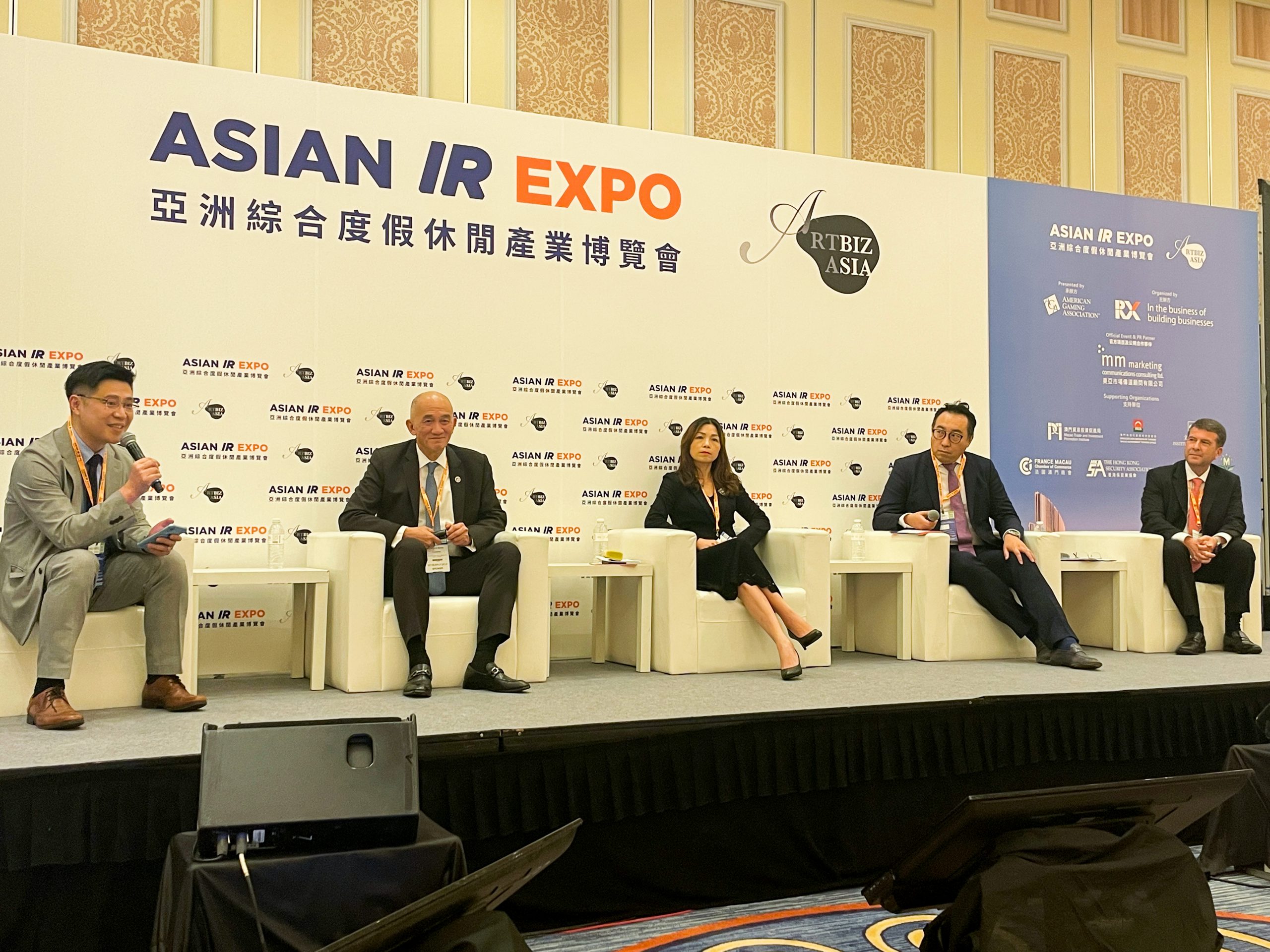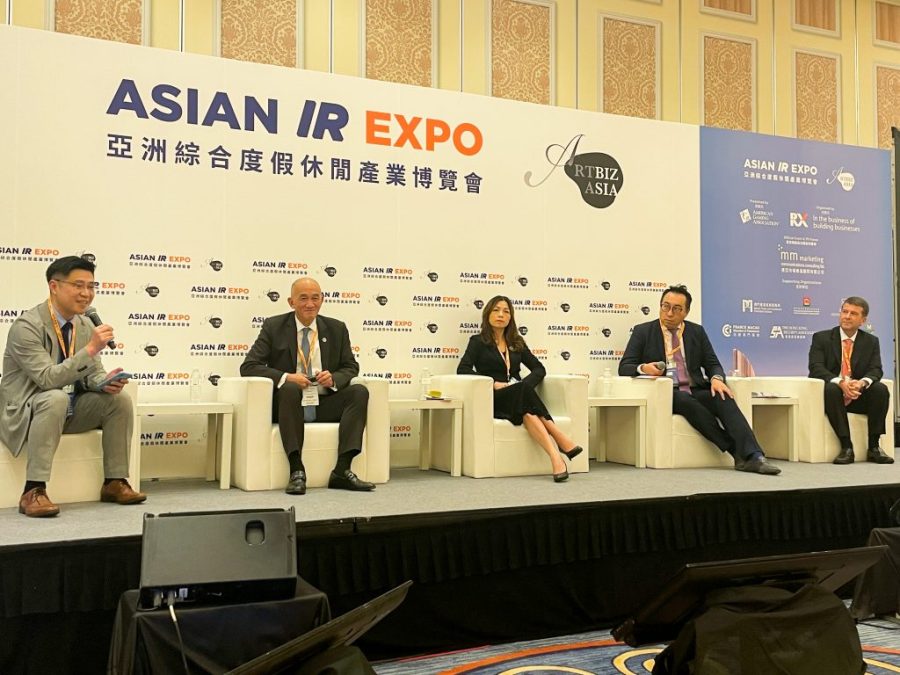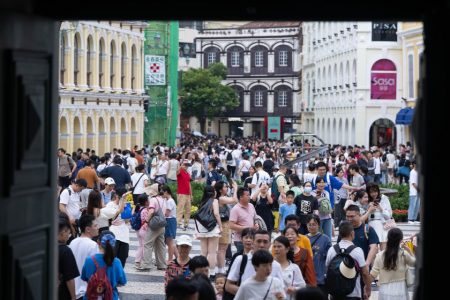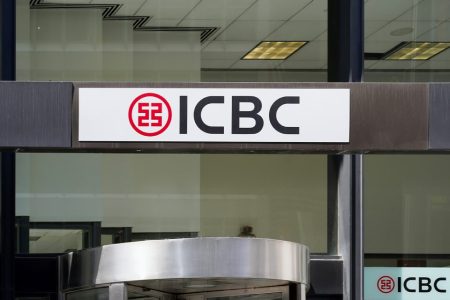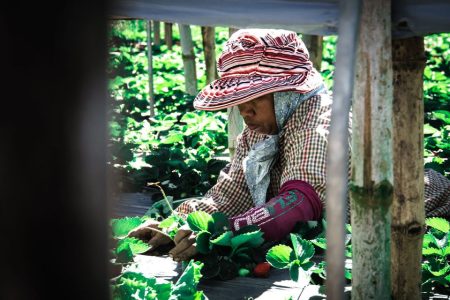The economics of post-pandemic tourism, sustainable travel, and a “new era” for Macao’s integrated resorts (IRs) were on the agenda during afternoon speaker sessions at the Global Gaming Expo Asia (G2E Asia) today.
The three-day event, back after a Covid hiatus, features more than 100 exhibitors and is expected to lure more than 5,000 trade visitors from 80 countries and regions.
The first of the afternoon’s speakers was the dean of the tourism faculty at the Macau University of Science and Technology. Offering an economic outlook for the travel trade, Ben Goh said that tourist volumes in many places – including Macao, Hong Kong and mainland China – were recovering well.
He continued: “Economy wise, it’s looking much better. It’s not quite there yet but it is much better than before. Hopefully we will be back to pre-Covid normal in 2025”.
Goh then remained on stage for a panel discussion that also featured Lawrence Fong, associate professor of integrated resort and tourism management at the University of Macau; Celia Lao, vice president of the Guangdong-Hong Kong-Macau GBA Aviation Exchange Association; Rutger Verschuren, area vice president, Macao operations of Artyzen Hospitality Group; and Jason Wong, director of Hong Thai Enterprises.
The experts discussed ways in which the travel industry had to accommodate the needs of travellers in the wake of the pandemic.
Lao said that retaining staff was challenging during the pandemic, so manpower was now one of the biggest challenges faced by travel, tourism and travel businesses scrambling to rehire employees.
“When you need to hire a team, you need to train. This takes time,” she said.
[See more: Mass market gaming revenues could match pre-pandemic levels in three months]
Verschuren agreed. “A lot of the blue card holders left Macao during the past three years, and this is not just about the quantity but also the quality. Macao has more top-quality five-star hotels compared to other parts of the world so you can imagine what we lost.”
He added, “It’s time to rehire and for the [Macao] government to finally release [more] quotas,” to hire non-local quality talent.
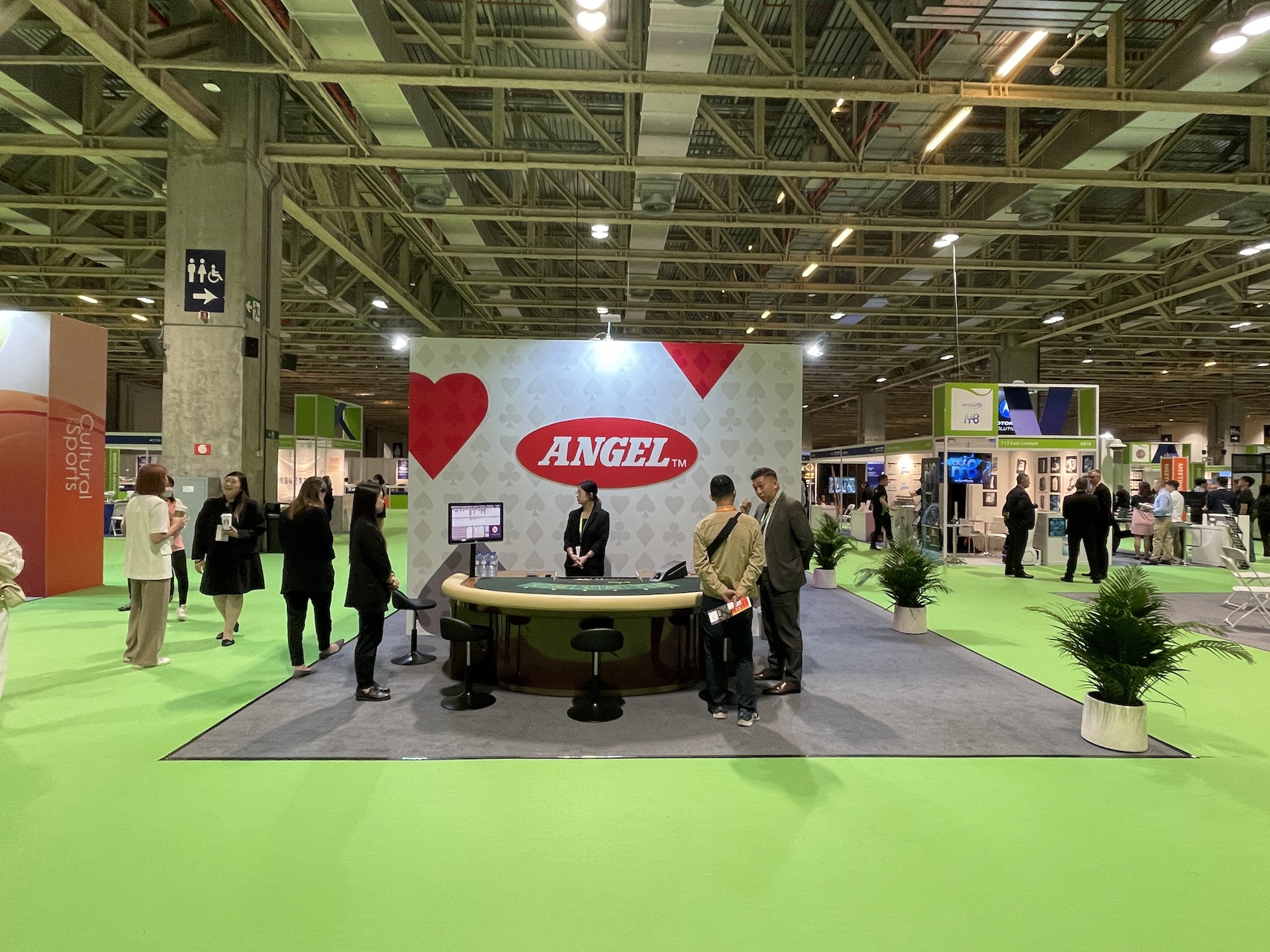
The panel discussion was followed by the afternoon’s keynote address. The head of the Macao Government Tourism Office, Maria Helena de Senna Fernandes, spoke on how integrated resorts could be leveraged “to drive sustainable growth and innovation.”
According to Senna Fernandes, the key lay in effective promotion, the creation of and participation in “iconic tourism events”, launching new tourism products, community tourism and quality tourism, among others.
[See more: ‘Invest in the future, not in buildings.’ Sands China president backs diversification at G2E Asia]
She added: “IRs provide a lot of opportunities and together with tourism the IRs have quite a big responsibility in order to chart the way for the economic development of Macao.”
The day concluded with a panel discussion on development of “smart” integrated resorts as a new era for the sector in Macao. On stage were Simon Lei, an assistant professor, at the Macao Institute for Tourism Studies; Wilfred Wong, the president and executive director of of Sands China; Zhao Hao, chief technology officer of Macau Pass; Alvin Zou, vice president of SenseTime Asia Pacific business group; and Derek Watterud, vice president of digital and technology solutions, MGM.
Wong defined a “smart IR” as “a hospitality and entertainment complex that utilises advanced technology to enhance overall guest experience, optimise operation and boost efficiency.”
Zou said the term should also mean “convenient” and “personalised,” while Watterud explained “When something is smart, it’s going to become very natural and transparent to the end users.”
Wong added: “We try to integrate all these apps and technology to create a seamless, personalised and pleasant guest experience.”
He said, however, that IRs need to continuously invest to upgrade not just technology but personnel. “We need a skilled workforce that is on top of the technology. There’s no use using advanced technology if your staff cannot handle it … and we also need to train the customers to use it.”
G2E Asia resumes tomorrow at the Venetian Macao. It is being held in conjunction with the Asian IR Expo, which brings together stakeholders from the wider integrated resort sector, such as destination marketing organisations and travel companies.
— With reporting by Gilbert Humphrey
